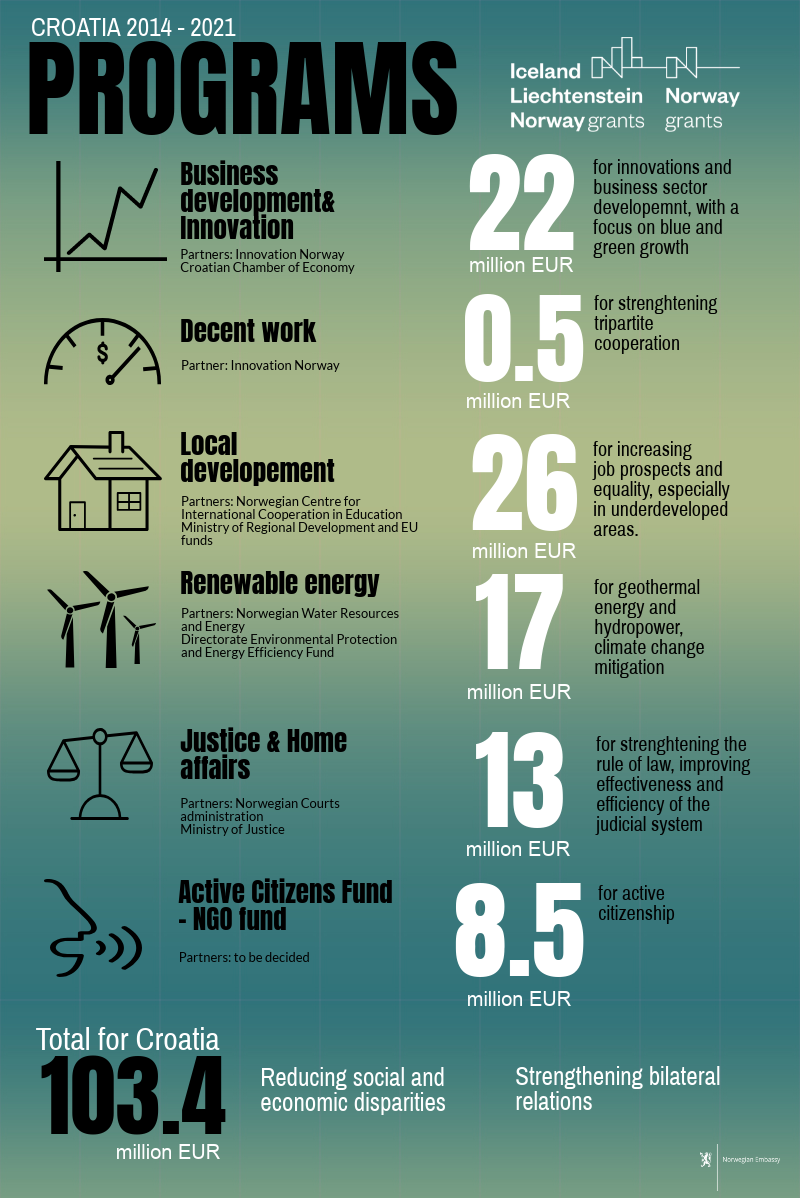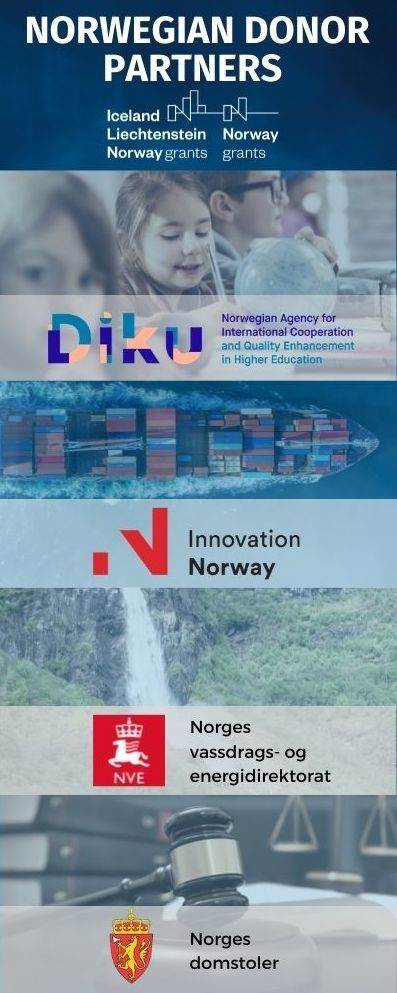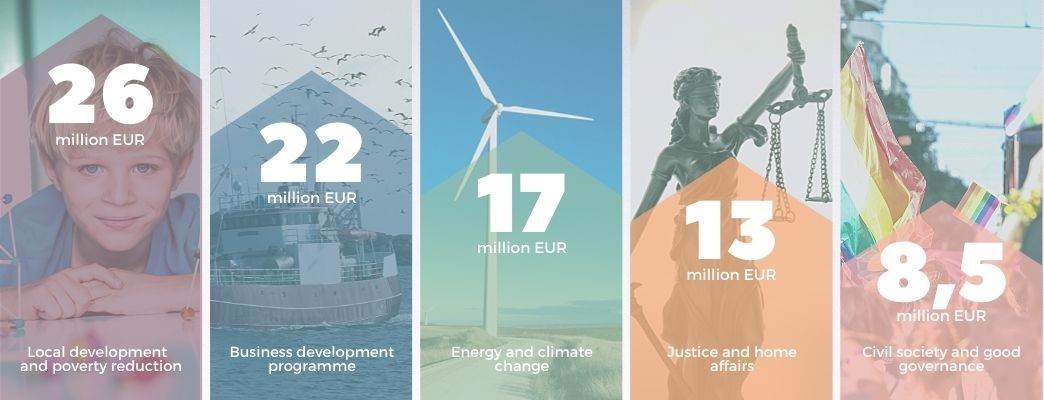The agreements on the Grants were signed in the presence of our prime ministers in Zagreb on 3rd July 2018. The programmes aim to increase competiveness, social inclusion, and energy efficiency as well as to provide support to the civil society and justice sector. The funds will be eligible until April 2024.
Programmes and bilateral cooperation

Strengthening bilateral ties between our countries is at the core of the Grants. Approximately 2 million Euros are set aside exclusively for that purpose. Partnerships will also be developed during the implementation of programmes.
Four Norwegian government agencies and institutions take part in the programme implementation together with Croatian counterparts. The role of Norwegian programme partners is to facilitate strengthening of the ties between Norway and Croatia and assists in the programme implementation.
|
More information: Read Partnership GuideFind a partner in Norway: |
The Bilateral Commitee
In order to address current issues of bilateral interest and to develop strategic partnerships beyond existing programmes, the Joint Committee for Bilateral Cooperation (JCBF) is established. The JCBF consists of representatives from donor countries of the EEA and Norway Grants and Croatia. By working together, the members should identify priorities and support projects and activities of mutual interest. The Embassy takes part in the work of the Committee as a voting member representing Norwegian Ministry of Foreign Affairs.
Read more about bilateral cooperation.
More about Norwegian partners

Innovation Norway is the Norwegian Government's most important instrument for innovation and development of Norwegian enterprises and industry. It supports companies in developing their competitive advantages and in enhancing innovation.
In Croatia it partners with the Croatian Chamber of Economy in the business development programme that focuses on blue and green growth. Innovation Norway also leads the Decent work programme with the objective to improve the tripartite cooperation between employer organisations, trade union and public authorities.
The Norwegian Agency for International Cooperation and Quality Enhancement in Higher Education (DIKU) collaborates with the Ministry of Regional Development and EU Funds in implementing the Local Development and Poverty Reduction Programme. The programme supports teachers and children of elementary schools from underserved areas and aims to increase their skills and future job prospects. A possibility to include the European Wergeland Centre, an additional Norwegian partner in the Local development programme, will be explored.
The Norwegian Centre for International Cooperation in Education (DIKU) is a Norwegian public sector agency that promotes international cooperation at all levels of education. The European Wergeland Centre (EWC) builds on Council of Europe’s charters and policies and stands as a resource centre on education for intercultural understanding, human rights and democratic citizenship.
Norwegian Water Resources and Energy Directorate (NVE) and Croatian Ministry of Regional Development and the EU funds will join forces in implementing energy efficiency programme. The NVE ensures environmentally sound management of Norway’s water resources, promotes efficient energy markets and cost-effective energy systems and contributes to efficient energy use. The directorate plays a central role in the national flood contingency planning and bears overall responsibility for maintaining national power supplies. From 2009 NVE is assigned greater responsibility for the prevention of damage caused by landslides.
Norwegian Court Administration and Croatian Ministry of Justice and Administration will work on improving effectiveness of the judicial system under the Justice and Home Affairs programme of the Grants. The Norwegian Courts Administration (NCA) administers the ordinary courts and the land consolidation courts. It provides support necessary for judges and staff to carry out their roles and to deliver justice efficiently and effectively. The NCA covers a steering role as well as carrying out the administrative and support for the courts. The NCA also holds a superior employer function and works to increase public confidence in the courts.
Facts about the Grants
The EEA and Norway Grants are rooted in the EEA Agreement which makes Iceland, Lichtenstein and Norway part of the internal European market. Before these countries the EEA agreement sets a common goal for working together in decreasing social and economic disparities in the EU and strengthening cooperation between European countries. To reach these objectives a total of 2,8 billion euros has been allocated to 15 European countries for the period 2014-2021. Norway secures almost 98 percent of the funds. To take part in the EEA and Norway Grants, Croatia became eligible in 2013 after joining the EU and becoming the signature the EEA agreement. This is the second programming cycle Croatia partakes since then and in the previous period 2009-2014 Croatia received the support of 9.6 million euros in total.
